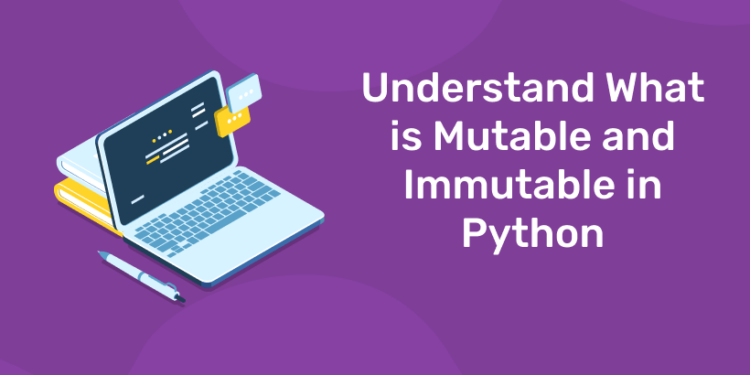Table of Contents
Every variable in python holds an instance of an object. There are two types of objects in python i.e. Mutable and Immutable objects. Whenever an object is instantiated, it is assigned a unique object id. The type of the object is defined at the runtime and it can’t be changed afterward. However, its state can be changed if it is a mutable object.
Mutable meaning in Python
Mutable is when something is changeable or has the ability to change. In Python, ‘mutable’ is the ability of objects to change their values. These are often the objects that store a collection of data.
Immutable meaning in python
1: Which of the following data types is immutable in Python?
Immutable is when no change is possible over time. In Python, if the value of an object cannot be changed over time, then it is known as immutable. Once created, the value of these objects is permanent.
“Ready to take your python skills to the next level? Sign up for a free demo today!”
List of Mutable and Immutable objects
Objects of the built-in type that are mutable are:
- Lists
- Sets
- Dictionaries
- User-Defined Classes (It purely depends upon the user to define the characteristics)
Objects of the built-in type that are immutable are:
- Numbers (Integer, Rational, Float, Decimal, Complex & Booleans)
- Strings
- Tuples
- Frozen Sets
- User-Defined Classes (It purely depends upon the user to define the characteristics)
Object mutability is one of the characteristics that makes Python a dynamically typed language. Though Mutable and Immutable in Python is a very basic concept, it can at times be a little confusing due to the intransitive nature of immutability.
“Get hands-on with our python course – sign up for a free demo!”
Mutable Objects in Python
#Creating a list that contains names of Indian cities
cities = [‘Delhi’, ‘Mumbai’, ‘Kolkata’]
#Printing the location of the object created in the memory address in hexadecimal format
print(hex(id(cities)))
Output [4]: 0x1691d7de8c8
#Printing the elements from the list of cities, separated by a comma & space
for city in cities:
print(city, end=’, ’)
Output [3]: Delhi, Mumbai, Kolkata, Chennai
#Changing the index[0] value from 1 to 3
foo[0] = 3
TypeError: 'tuple' object does not support item assignment
Immutable Objects in Python
# Printing the elements of tuple weekdays
print(weekdays)
Output [1]: (‘Sunday’, ‘Monday’, ‘Tuesday’, ‘Wednesday’, ‘Thursday’, ‘Friday’, ‘Saturday’)
#Printing the location of the object created in the memory address in hexadecimal format
print(hex(id(weekdays)))
Output [4]: 0x1691cc8ad68
#Printing the location of the object created in the memory address in hexadecimal format
print(hex(id(weekdays)))
Output [2]: 0x1691cc35090
#Creating a Tuple which contains the English name of weekdays
weekdays = ‘Sunday’, ‘Monday’, ‘Tuesday’, ‘Wednesday’, ‘Thursday’, ‘Friday’, ‘Saturday’
“Experience the power of our web development course with a free demo – enroll now!”
Mutable and immutable objects are handled differently in python. Immutable objects are quicker to access and are expensive to change because it involves the creation of a copy. Whereas mutable objects are easy to change. The use of mutable objects is recommended when there is a need to change the size or content of the object.
Entri provides video classes as well on various important topics by the excellent faculties. One will get revision modules, and monthly tests based on the classes. Entri provides an excellent platform with full-length mock tests including previous year’s question papers. It also gives you access to clarify your doubts.













